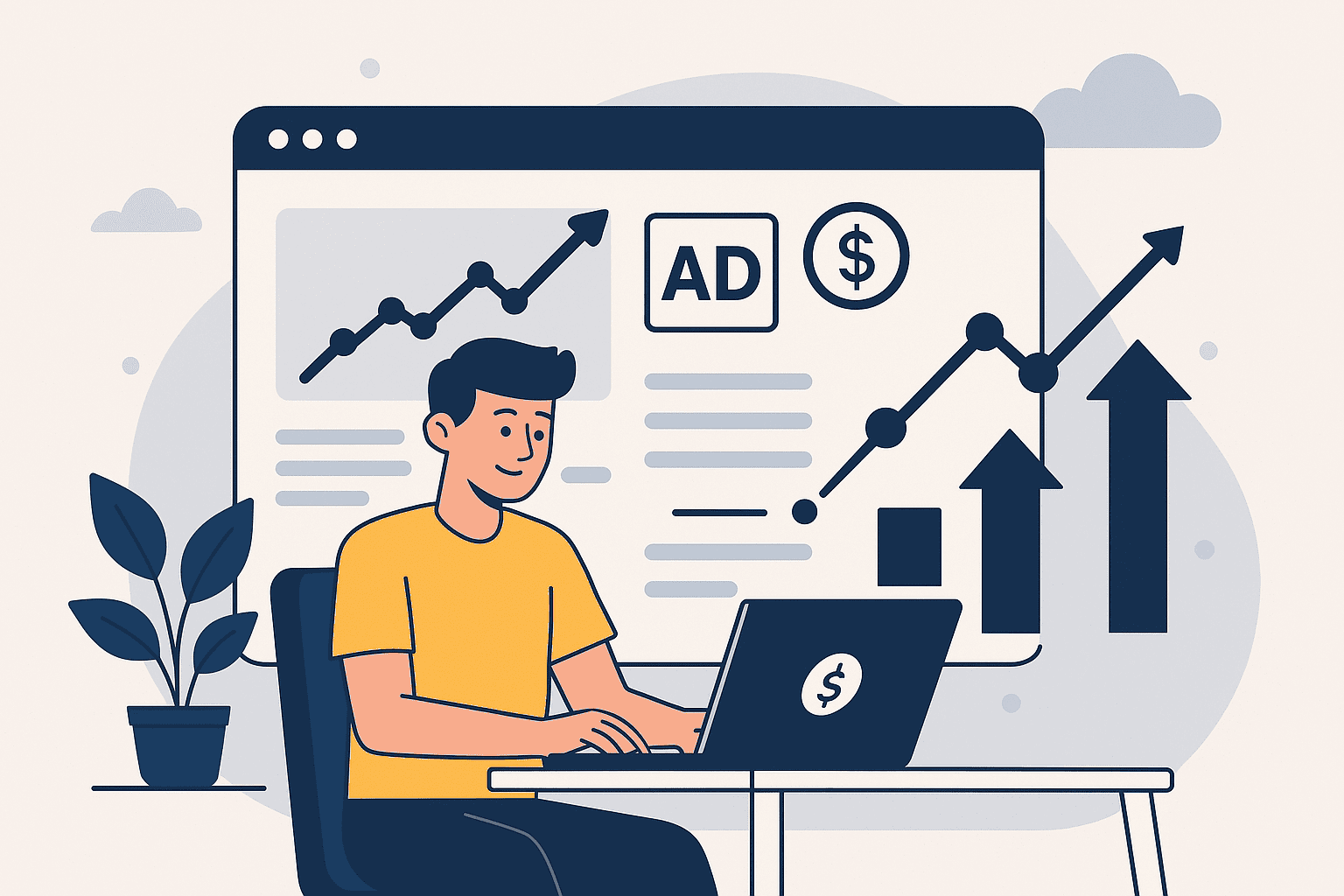
Traffic arbitrage is evolving rapidly, and one of the key trends is the integration of artificial intelligence into advertising campaigns. Machine learning algorithms no longer just analyze data—they predict trends, optimize bids, and even create high-converting creatives.
There’s no need to spend weeks on testing anymore—AI automates A/B experiments, precisely identifies audiences, and helps media buyers scale campaigns with high efficiency. The real question isn’t whether to use AI, but how to leverage it effectively while avoiding common pitfalls.
In this article, we’ll explore how AI is reshaping traffic arbitrage, which tools actually work, and what the future holds for automated advertising.
If you want to take your advertising campaigns to the next level, contact our managers for consultation and access to leading AI solutions—for both publishers and advertisers.
Read also: Start farming Facebook accounts, Break down your 2025 arbitrage launch budget and Master affiliate conferences in 2025.
MyBid is an advertising platform with favorable conditions for partners. We offer solutions for both advertisers and traffic owners.
For advertisers:
For webmasters:
Start using MyBid today. For advertisers, this is an opportunity to get access to high-quality traffic, and for webmasters — a stable income from the monetization of advertising.
Traffic arbitrage is the process of purchasing traffic from ad platforms and monetizing it through offers or advertising models. Traditionally, media buyers manually managed campaigns, adjusted bids, and analyzed data. However, as digital advertising becomes more complex, AI is increasingly taking over these tasks.
Artificial intelligence helps automate routine processes, enhance conversions, and reduce risks.
The standard arbitrage model involves purchasing traffic from ad networks (such as Google Ads, Yandex.Direct, Facebook Ads) and redirecting it to CPA offers or affiliate programs where conversions generate revenue.
Effectiveness depends on proper targeting, well-configured ad materials, and continuous testing. In the past, these processes were managed manually, requiring time and expertise.

AI is fundamentally transforming the arbitrage process by optimizing tasks that were previously manual. Automated algorithms analyze vast data sets, predict trends, and improve traffic quality.
Key advantages of AI in arbitrage:
AI enables media buyers to scale faster, reduce costs, and generate stable profits in a competitive landscape.
If you’re looking to integrate AI into your arbitrage strategies, our advertising network can help set up automated optimization and precise traffic management.
Artificial intelligence is redefining traffic arbitrage. Manual adjustments no longer provide a competitive advantage—AI accelerates testing, accurately identifies audiences, and automatically refines ad materials.
Traditional A/B testing required significant time—launching multiple ad variations, analyzing data, and finding optimal formats. Now, AI can test hundreds of combinations in minutes, automatically scaling successful setups and eliminating ineffective ones.
Neural networks study user behavior, adapt creatives to target groups, and allocate budgets toward the most effective advertising materials. This shortens the testing cycle and boosts ROI.
Designing ad materials is no longer limited to manual work. AI analyzes successful visual strategies and automatically generates banners, videos, and teasers tailored to different advertising platforms.
What does neuro-design offer?
AI reduces content production costs and speeds up campaign launches, replacing intuitive decisions with data-driven strategies.
Automated advertising management enables arbitrage specialists to control traffic with maximum precision and minimal expenses.
If you want to scale your campaigns efficiently, our advertising network provides solutions for profitable automated arbitrage.
Artificial intelligence is already playing a major role in arbitrage. It streamlines content creation, audience analysis, and ad campaign automation. Among the many available tools, five stand out as particularly useful for arbitrage specialists.
ChatGPT/GPT-4 – Automated Copywriting Well-crafted text is crucial for conversions. ChatGPT and its advanced versions generate ad copy, landing pages, and SEO descriptions. This tool is especially useful for A/B testing headlines and texts to identify the most effective variations.
MidJourney/DALL·E – AI-Powered Banner Creation Visual creatives no longer require manual effort. AI tools like MidJourney and DALL·E generate images based on predefined parameters. This simplifies the banner creation process and allows for testing multiple options without hiring designers.
Google AutoML – Conversion Forecasting Bid optimization and accurate conversion predictions are among the most challenging aspects of arbitrage. Google AutoML analyzes past ad campaigns and predicts which offer-audience combinations will yield the most profit.
TensorFlow – Big Data Analysis Arbitrage involves processing vast amounts of data, including behavioral metrics, traffic sources, and conversion rates across geographies. TensorFlow helps structure this data and uncover patterns that would be difficult to detect manually.
– Automated Content Optimization For frequent updates to texts, landing pages, social media posts, and email campaigns, handles automation seamlessly. It optimizes content for target queries, boosting effectiveness.
AI accelerates arbitrage, but its implementation comes with advantages and potential risks.
Advantages:
Risks:
Each year, traffic arbitrage becomes more automated, but will it eventually operate autonomously?
AI is already capable of launching ad campaigns without human involvement. Autonomous systems analyze data, adjust budgets, and refine creatives in real time. This minimizes errors and increases profitability.
As AI-driven advertising advances, regulatory concerns arise. What algorithms can be used for data collection? What restrictions apply to targeting? In the coming years, the industry will face new rules and transparency requirements for advertising technologies.
AI won’t replace arbitrage specialists, but it significantly enhances their efficiency. To start leveraging AI technology, selecting the right tools and understanding their capabilities is essential.
Artificial intelligence is not the future—it’s the present of traffic arbitrage. The sooner you adopt AI, the easier it will be to gain a competitive advantage.